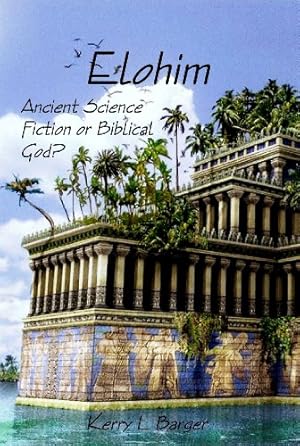Share This
Description
Have you ever wondered who first penned the bible and where its familiar stories originated?
Some say much of it was written by Moses a thousand years before that. Others believe it to be a collection of tales told generation after generation around the campfires of nomads.
Recently, scholars have uncovered another explanation---one that defies belief! The first intelligent life on earth may have arrived here from another world, according to the translators of some recently discovered 5,000 year-old texts.
This fantastic notion was first documented by an individual claiming to be one of those original explorers who traveled to earth, genetically crafted the first humans, and guided the development of civilization. According to his own words, the author of a very ancient story was (in a very practical sense) our 'heavenly' father. His influence can be found in every major religion on earth today.
An editorial review by Peter M. Fitzpatrick, The US Review of Books:
"I have sought to find additional truths underlying biblical texts by researching historical and archeological data."
Sumerian literature, lately rediscovered through archeological relics over 5,000 years old, is composed of cuneiform letters that are difficult to translate. As a result, widely varying interpretations of its meaning have fueled controversial theories, the most famous perhaps being those of Zechariah Sitchin. His ideas about ancient astronauts from a planet beyond Neptune that mine gold on Earth by genetically engineering Homo erectus with their own DNA to produce Homo Sapiens, are echoed here. Kerry frames his narrative in the recollections of the Biblical Nehemiah as he is returning to Israel after the Babylonian Captivity. His memory of the Sumerian shards he was made to translate lead to a "flashback" style of recasting the Book of Genesis retold as if "Elohim" was in fact an ancient astronaut. The planet of origin is updated to the recently mapped Eris, 27 times more massive than Pluto. All "tree-of life" references are interpreted as being symbolic of DNA strands.
The book is very heavy on theme, of course, the Biblical language of the ancient astronauts almost a word-for-word transliteration of passages from Genesis. As such, the characters are not deeply fleshed out, their function chiefly being to argue the author's thesis. The plot is Epic, of course, the creation of modern humans, but that is not the author's concern, really. His main purpose is to re-affirm a transcendent God behind it all, and to reconcile Sitchin's theories with religious belief. Not likely to be carried by Christian bookstores, the writer is nevertheless committed to a Christian belief.
(Notice to literary agents, publishers and producers: all applicable rights are open for bid.)
Tag This Book
This Book Has Been Tagged
Our Recommendation
Notify Me When The Price...
Log In to track this book on eReaderIQ.
Track These Authors
Log In to track Kerry L. Barger on eReaderIQ.

